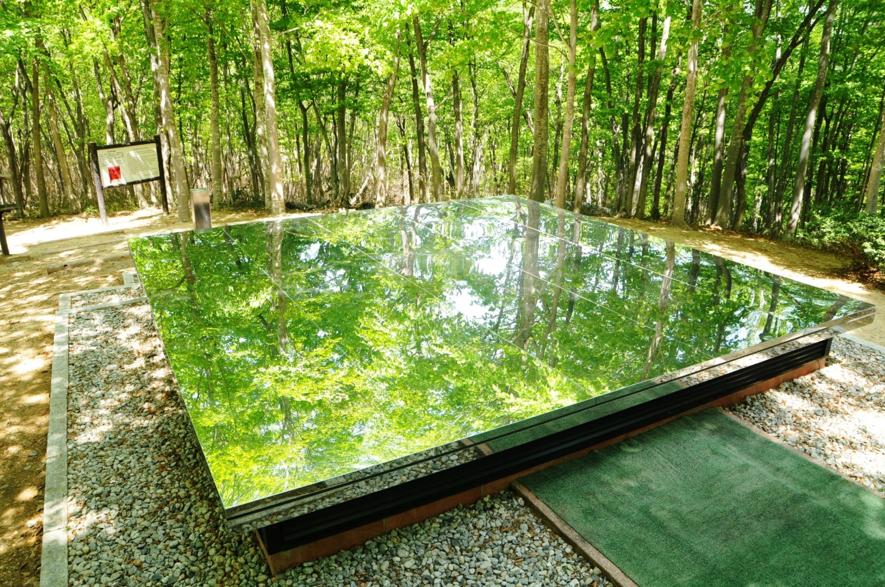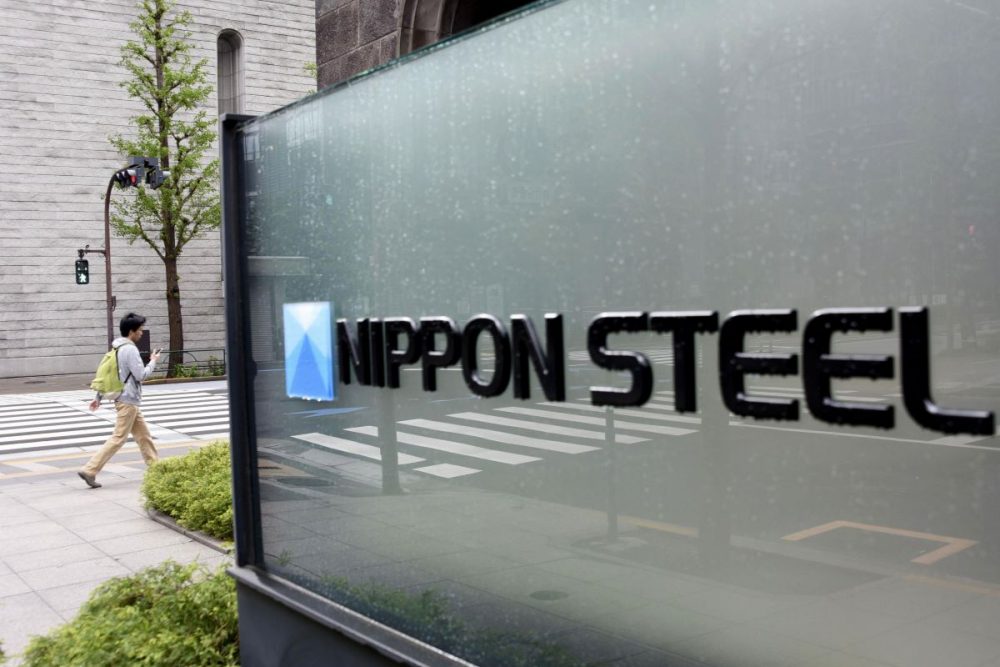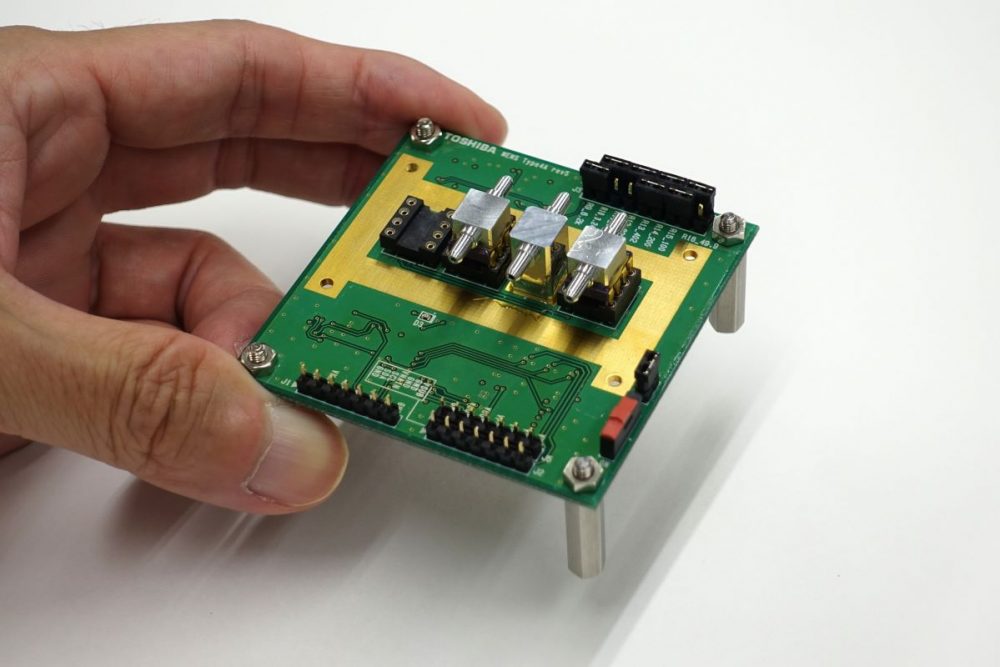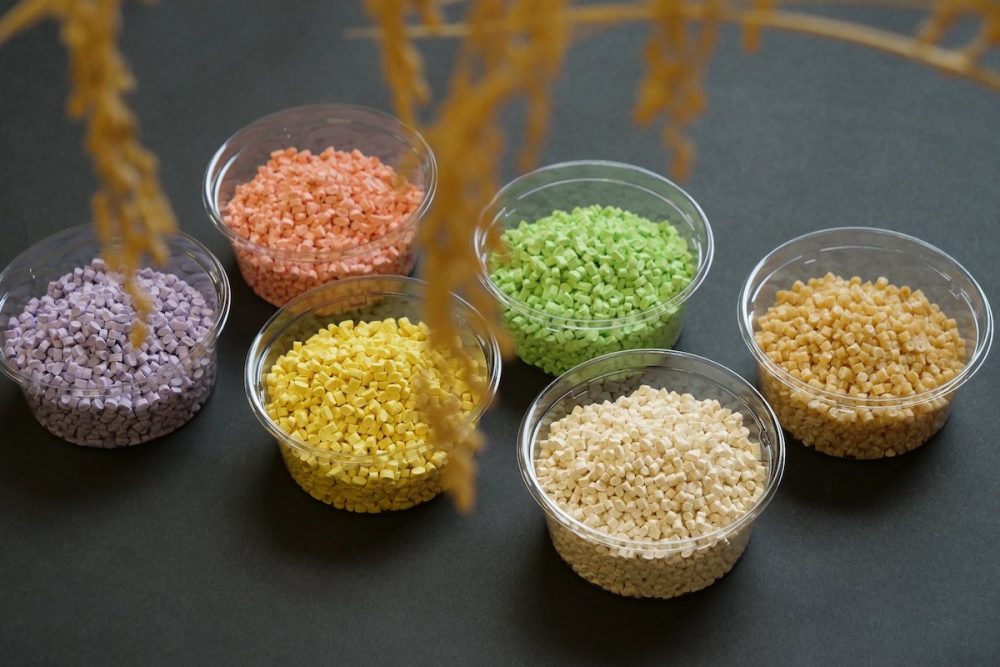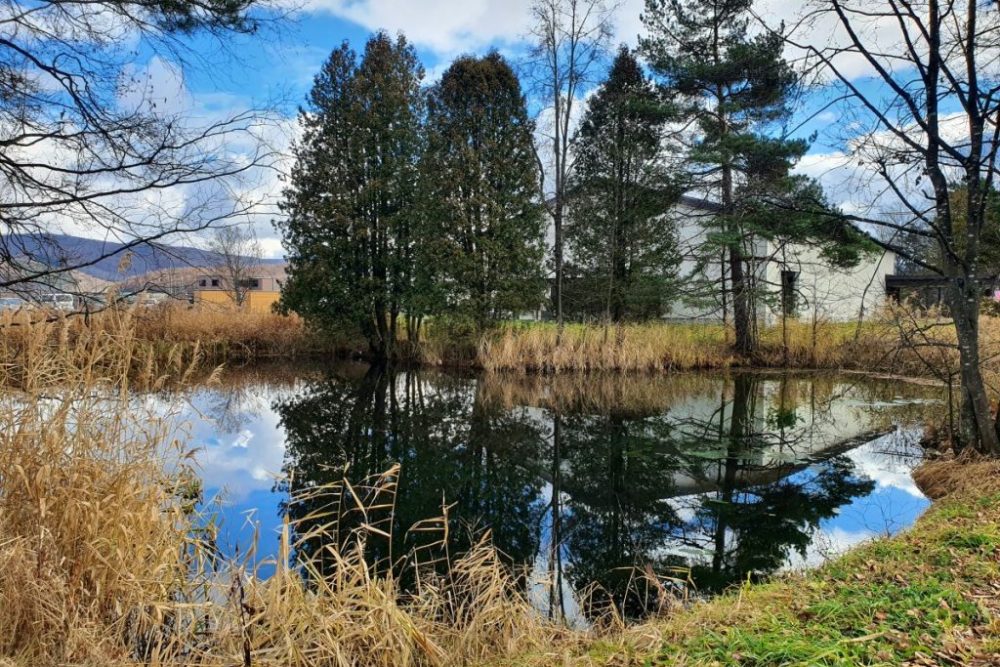Pedal Power: A Swiss Family's Journey Around Japan
A Swiss family of four has embarked on an extraordinary six-month cycling journey across Japan, advocating for sustainable mobility and nature exploration.
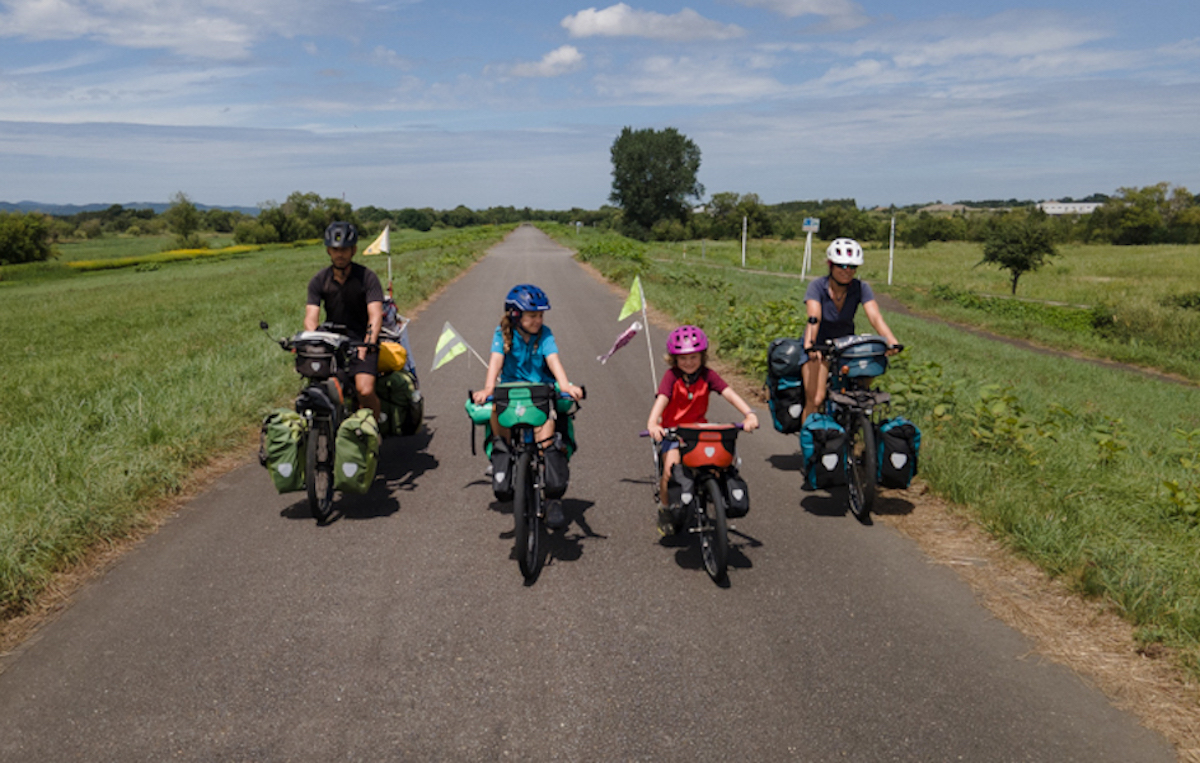
Packing for a big family road trip can be a daunting task. Now imagine you have to cover every basic need, including accommodation, cooking utensils, clothing, and communication devices — and take it all along with you. This is the daily reality for a Swiss family of four who have cycled around the world with their possessions in tow.
Meet the globetrotting Pasche family — Céline, Xavier, and their daughters Nayla (10) and Fibie (6) — who are in the final stages of a six-month cycling trip around Japan. Learn more about their travels and why they love their nomadic life on wheels.
Their Journey Begins
Céline and Xavier first hit the road in 2010, with the goal of cycling from Switzerland to New Zealand, via Europe, the Middle East, Siberia, Asia, and Australia. They welcomed their first child in 2013 and Céline gave birth on the island of Penang in Malaysia. They resumed their travels when baby Nayla was five months old, eventually reaching New Zealand in 2015.
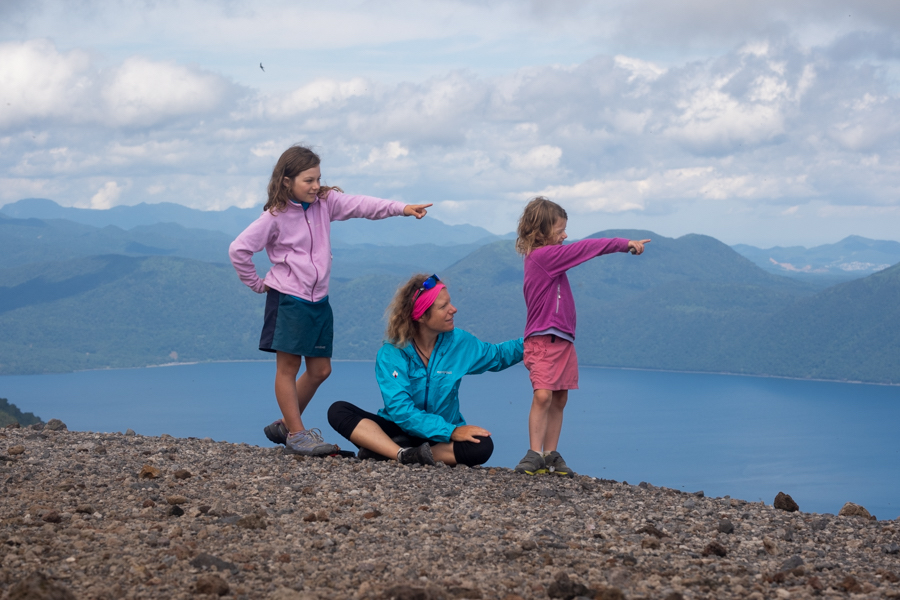
After returning to Switzerland, they set out again the following year for a four-year journey around the northern part of the globe, with little sister Fibie joining the family in 2017. Céline and Xavier have now covered more than 90,000 km since initially setting out 13 years ago.
Traveling by bicycle allows them to discover a sense of place through immersive travel, stopping anywhere at any time. "Our lives have taken us into adventure and we are submersed in nature. Experiencing things with our entire bodies gives us a sense of wonder and gratitude," Céline says.
Japan Eco Track
The family are currently in Japan in their capacity as official ambassadors for Japan Eco Track. This initiative originated from a series of events called Sea to Summit, which was started in 2009 by outdoor company Montbell. The aim is to encourage people to connect with nature and explore different regions of Japan through "human-powered activities," such as cycling, trekking, and canoeing.
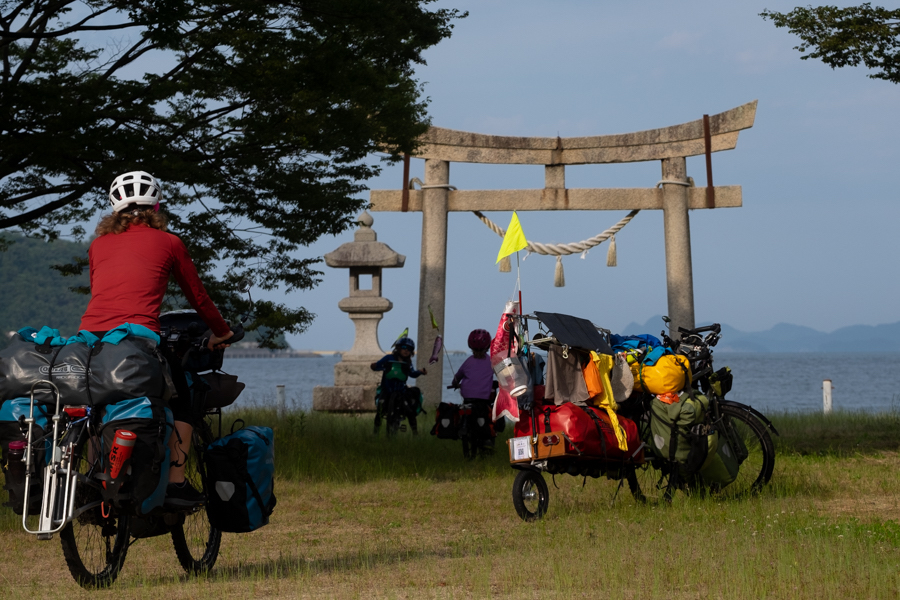
Over time the concept expanded and, in cooperation with regional government and other stakeholders, Montbell has produced a series of comprehensive guides so that visitors can experience these regions at their own pace. The free guides include detailed maps and other helpful information, and a growing number are now available in English.
The Pasche family is cycling 6,000 km, promoting the importance of sustainable mobility and time in nature, with meet-ups and talk events along the way. Arriving in Osaka in May, they headed to Tottori and traveled up to Hokkaido along the western side of Japan. They are now making their way back to Osaka along the eastern side.
At Home on the Road
Less is definitely more to this family, who have limited their luggage to what they can carry with them. Their possessions add up to a combined weight of 200 kg, which includes four bicycles and a trailer, a tent, mattresses, a fuel stove, pressure cooker, and water filter. Their clothing was carefully chosen to suit the multiple seasons and climates they have encountered in Japan.
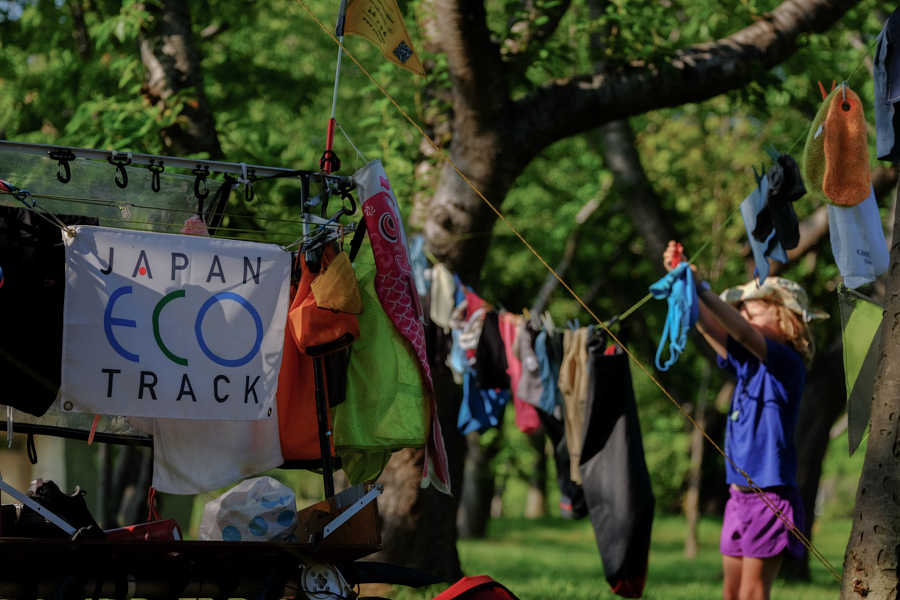
Traveling light means making smart decisions. Even the children understand they can only bring along what they really need or want, such as their most cherished toys, books, and games. "We also have their schoolbooks, art materials — and tutus! They love to dance," Céline explains with a smile.
The family covers an average of around 50 km a day on the road. Xavier and Céline make innovative use of the resources available to them. They charge their electronic devices through two dynamos and a solar panel, and sprout their own seeds in plastic containers to use in salads. There's even a drying rack for laundry on their trailer.
Growing Up Global
As infants, Nayla and Fibie traveled in a covered trailer behind one of their parents. They later graduated to a tag-along system, whereby a child’s bike is connected to that of an adult. Nayla has already covered over 10,000 km on her own bicycle. Having built up her stamina and confidence with the tag-along system, Fibie is increasingly traveling under her own pedal power, too.
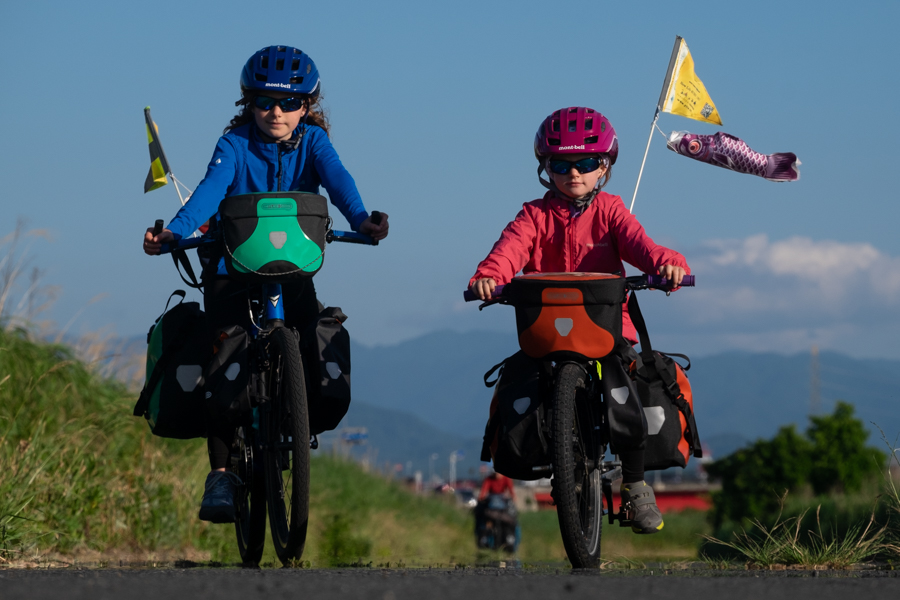
"We enjoy cooperating as a family and the children play their part in decision-making. Sometimes this takes us on a new route and leads to unexpected discoveries," Céline says. Rather than following a set educational curriculum, the children's studies are based on their current location, activities, and interests. Both girls keep a daily journal and are learning English, German, French, and Japanese.
At a talk event at Montbell's headquarters in Shinagawa, Tokyo, Nayla and Fibie won hearts when they greeted the audience and introduced themselves in Japanese. They each narrated several sections of a video presentation about the family’s experiences in English before answering questions from the audience.
The parents were asked if they had concerns about a lack of opportunities for the girls to form friendships. Céline replied, "For Nayla and Fibie, the idea of a friend is not just someone of the same age — it can be anyone, from a baby to a person in their 80s. They have friends all over the world."
Keeping It Real
While it may seem like the family leads a charmed existence, both parents have maintained their careers on the road. "People might think we have been on holiday for the last 13 years, but we work along the way!" says Xavier. "This often means working at night after setting up camp."
Xavier draws on his photography and videomaking skills to document the family's journey, and collaborates with Céline, a writer, to produce stories for the media. Céline is also a life coach and offers her services online to families and individuals.
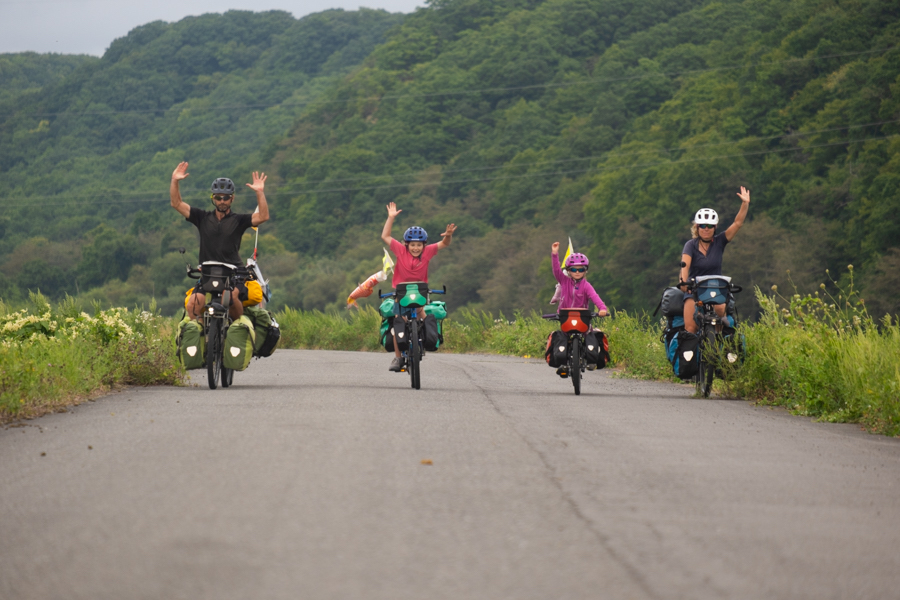
Life on wheels means being ready to adapt to any situation calmly and creatively, whether it's a bicycle part suddenly breaking or a child running a fever. The family carry their own basic medical supplies and both parents have undergone emergency training. They also have access to telemedicine via a doctor back in Switzerland.
One reality of a nomadic experience is waking up each morning not knowing where you will be sleeping that evening. "Sometimes it can be hard to find a good place to camp. We found out it was better to cycle another 10 or 20 kilometers than having a bad night’s sleep," Céline says pragmatically.
Connections Across Cultures
One of the highlights of their lifestyle is receiving local hospitality from people who open their hearts and their homes to the family. Maria Naito, a British resident of Mito, Ibaraki, had been following the family on social media and realized they were coming through her area.
"I reached out to them, offering a place to stay. I backpacked and traveled a lot over 30 years ago and I remember that it was nice to occasionally have a place where you could rest, do laundry, and have a home-cooked meal," says Maria, who runs her own English school.
The Pasche family’s visit coincided with a class for some of Maria’s elementary school-aged students, who enjoyed playing games in English with Nayla and Fibie. "Traveling around the world by bicycle is amazing! I hope to meet the Pasche family again someday, somewhere," says nine-year-old Hanna Yoshida.
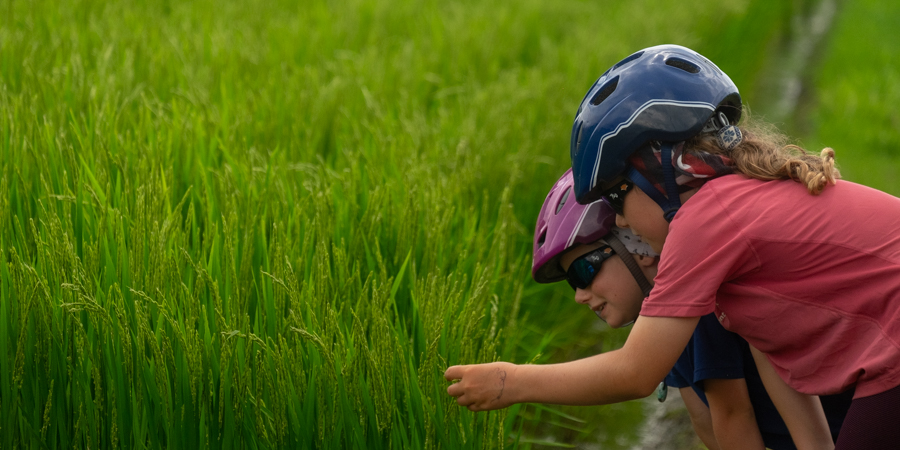
"It was interesting to see how the family had decorated their bikes with koinobori (carp streamers) and to hear they liked natto (fermented soybeans). I think this experience of learning about different countries will be a valuable asset for their daughters’ futures," adds Hanna’s mother, Marika.
Xavier and Céline want to encourage other families to put down their electronic devices and get out on their bicycles to experience the great outdoors together. "Children need to have a strong relationship with nature in order to find solutions for future challenges," Céline says. "We chose to create our slow life, centered around what is important to us: raising our children between cultures and nature, and being part of a greater solution."
Find out more at the Pasche Family website, or follow them on Facebook and Instagram.
Louise George Kittaka is a bilingual writer and content creator from New Zealand. She writes for numerous media platforms and also lectures at Shirayuri Women’s University in Tokyo.






